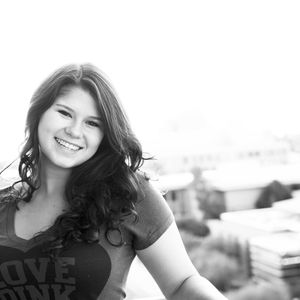If it weren’t for the magic of the coffee bean, I’m not sure how I would get through each day. Reading or talking to my sister with a cup of joe in hand is my favorite way to de-stress. My interest in coffee led me to a class taught by Paul Curtis. Paul’s resume includes: master roaster, coffee critic, barista, and Q grader. Needless to say, he knows what he’s talking about.
The calming and productive environment, in addition to the countless awesome ways to enjoy coffee is making this culture more popular. Trends such as nitro coffee and cold brew defined coffee culture in 2016. What does 2017 have in store for coffee lovers like myself? I enlisted Paul to help me find out.
1. Turkish Coffee
There was an emperor who had 40 coffee experts in his palace responsible for caffeinating him, that is how serious this culture takes its coffee. The first coffee house was opened in Istanbul in 1555. Yet, according to Paul, there is only one brand of traditional Turkish coffee available in the United States, called Kaffette.
What sets Turkish coffee apart is the full concoction brewing method. To achieve this, the grounds are left in the cup to be consumed while you drink the coffee. This results in a higher caffeine content with a different flavor profile. One serving is about the same size as an espresso shot (around 3 oz).
This nostalgic beverage is beginning to pop up more and more, I’ve seen Kaffette in health food stores and restaurants. If you get the chance to try Turkish coffee, don’t let it pass you by.
2. Specialized Coffee
By now, I’m sure you’ve heard of Kona coffee. This stuff so coveted, there is a tab on a Kona coffee website called “Extra Fancy” where a five pound bag goes for $180.95. Before it was famous, the species called “Kona Typica” came from Guatemala, then, in 1892 Hermann Widemann brought the trees to Hawaii where the invasive species flourished.
Large farms began to grow these trees to meet the demands of consumers. As time progressed farmers gained experience from the bigger farms and established smaller, more specialized farms where they were able perfect the beans.
Many countries in the Americas, like Costa Rica, are full of large coffee farms that are following this trend. The end result? Lots of high-quality coffee from smaller farms that go straight from farm to roaster. Just don’t forget this will cost you a pretty penny.
3. Cold Brew Becoming Even More Marketable
Cold brewing is a whopping 40-60% less acidic than other brewing methods. Additionally, the lack of heat in the brewing process leaves the coffee with less carbon dioxide and nitrogen. According to Paul, “It makes coffee artificially bright.” For those who don’t speak coffee, this means coffee has a metallic or biting (bitter) flavor. The only trade off is the lower caffeine content- unless you want that, but who would want that?
With an increase in demand, it is projected that the market will shift to selling more cold brewing equipment for in home use. From grinders to brewing containers it looks like cold brew is going to be easier to make at home.
4. Coffee Universities
Savaya coffee market in Tucson, Arizona prides itself on holding free classes for passionate coffee lovers or people with an hour on their hands looking to learn something new. For over eight years, Savaya has been offering monthly tasting, barista, and roasting classes. This is where I met Paul and his awesome kids.
Coffee universities are great for both the business and the customer. They create a stronger relationship between the customer and the business, generating word of mouth while giving the customers a deeper appreciation of the products they buy. More and more coffee shops are taking note of the success that others have achieved.
5. Monopolies On Species of Trees
Remember the game monopoly? The goal was to buy up all of the hotels, railroad tracks, just about everything on the board so when someone landed on your space you made a profit. In the world of coffee, monopolies equate to companies having legal control over the exclusive use of certain species of coffee trees. This means companies with the rights to the species are able to plan the way the trees are raised, resulting in uniformity of the beans. Aside from the lack in diversity, most of these species are in high demand, therefore, it makes economic sense to have monopoly.
It looks like there’s a lot to look forward to in 2017. What a time to be alive!


